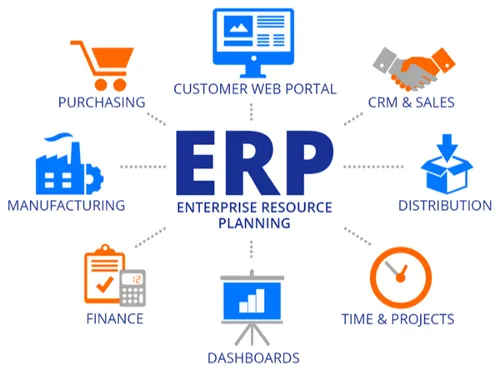
An ERP (Enterprise Resource Planning) consultant is a professional who specializes in guiding organizations through the process of selecting, implementing, and optimizing ERP systems to improve business operations, streamline processes, and enhance overall efficiency. ERP consultants play a crucial role in ensuring that a company’s ERP implementation aligns with its strategic goals and meets its unique business requirements. Here are the key responsibilities and activities of an ERP consultant:
1. Needs Assessment: An ERP consultant begins by understanding the organization’s existing processes, pain points, and goals. They conduct a thorough analysis of the company’s requirements to determine which ERP system or modules are most suitable.
2. Vendor Selection: Based on the needs assessment, the consultant assists the organization in selecting the appropriate ERP vendor or solution. This involves evaluating factors such as functionality, scalability, cost, support, and industry fit.
3. Project Planning: The consultant creates a comprehensive project plan that outlines the implementation timeline, tasks, resources needed, and milestones. This plan helps ensure a structured and organized approach to the implementation process.
4. Customization and Configuration: ERP systems are often tailored to fit an organization’s specific processes. The consultant works with the vendor to customize and configure the system to meet the company’s unique requirements.
5. Data Migration: Moving data from legacy systems to the new ERP system is a critical task. The consultant helps design and execute a data migration strategy to ensure that data is transferred accurately and securely.
6. Integration: ERP systems often need to integrate with other applications and systems, such as CRM, accounting software, and e-commerce platforms. The consultant oversees these integration efforts to ensure seamless data flow.
7. User Training: Successful ERP implementation requires user adoption. The consultant designs and delivers training programs to educate employees about how to effectively use the new ERP system.
8. Change Management: ERP implementations can bring significant changes to an organization’s processes and workflows. The consultant helps manage these changes by communicating with stakeholders, addressing concerns, and fostering a smooth transition.
9. Testing and Quality Assurance: Before the ERP system goes live, the consultant ensures that it undergoes thorough testing to identify and rectify any issues or bugs. This helps prevent disruptions after the system is in use.
10. Go-Live Support: During the go-live phase, the consultant provides on-site or remote support to address any issues that arise and ensure a successful transition to the new system.
11. Post-Implementation Optimization: After the ERP system is operational, the consultant continues to work with the organization to optimize processes, address any post-implementation challenges, and make adjustments as needed.
12. Performance Monitoring: The consultant monitors the performance of the ERP system, tracks key performance indicators (KPIs), and helps the organization identify opportunities for further improvement.
13. Upgrades and Maintenance: As the ERP system evolves, the consultant assists the organization with software updates, patches, and ongoing maintenance to ensure the system remains up-to-date and secure.
In essence, an ERP consultant serves as a guide, expert, and facilitator throughout the entire ERP implementation journey. Their role is to ensure that the ERP system aligns with the organization’s strategic objectives, enhances operational efficiency, and delivers a positive return on investment.
Regards
Antony S – ERP Solution Consultant